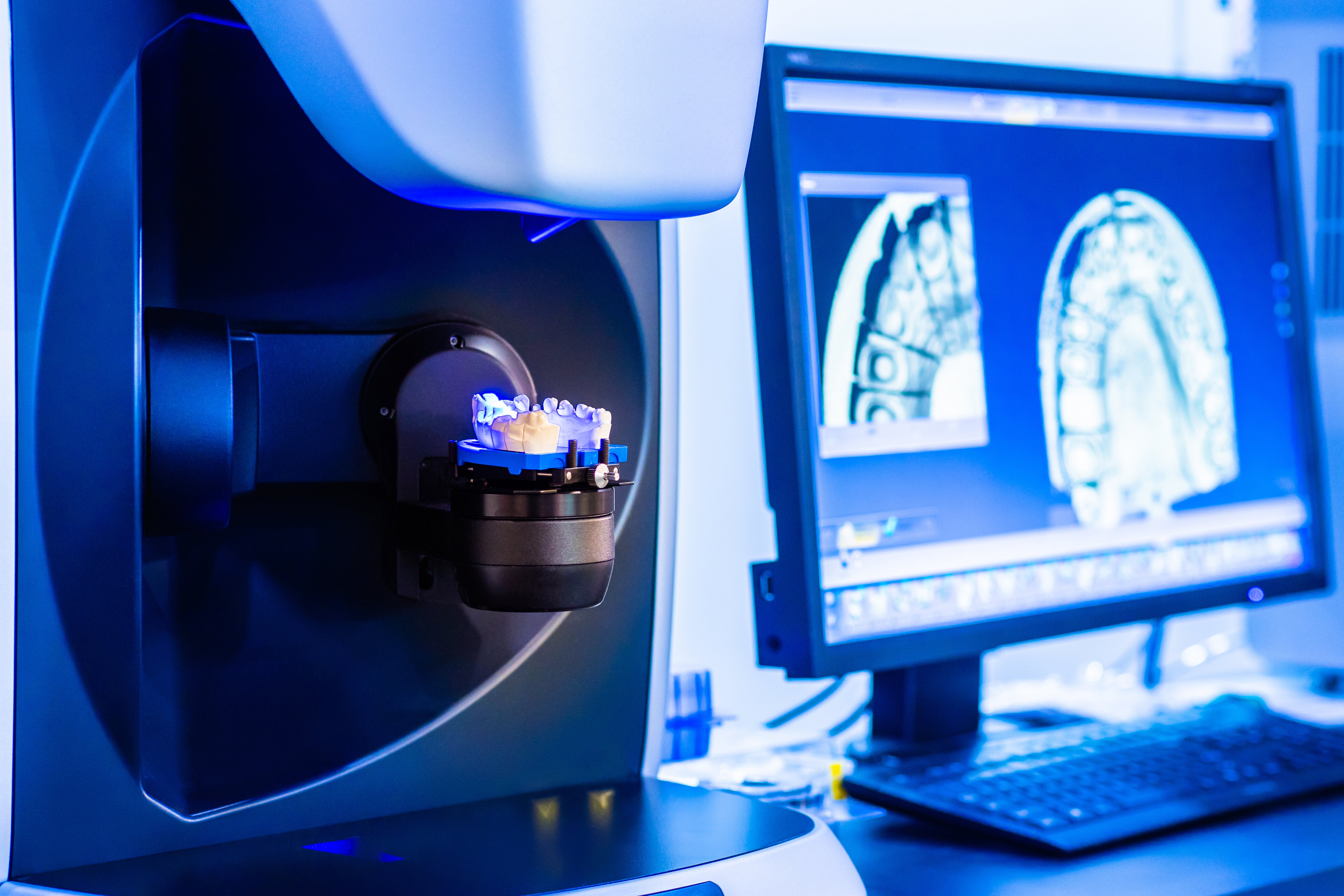Introduction:
As a dentist, you play a critical role in helping patients maintain their oral health and improve their quality of life. Dentistry is a challenging and rewarding field, and it requires a combination of technical skills, communication skills, and a passion for helping others. If you're interested in pursuing a career in dentistry, this guide will provide you with an overview of the field, the top courses, popular specializations, job categories, and career growth opportunities.
Overview of Dentistry:
Dentistry is a vital branch of medicine that focuses on the health of the mouth, teeth, and gums. The practice of dentistry dates back thousands of years, with evidence of dental treatments found in ancient civilizations such as the Indus Valley Civilization, Ancient Egypt, and Ancient Greece.
Today, dentists play a critical role in helping people maintain their oral health and prevent dental diseases and conditions. They also diagnose and treat dental problems, such as cavities, gum disease, and oral cancer, using a range of techniques and procedures.
One of the primary functions of a dentist is to perform regular checkups and cleanings to maintain oral health. During these appointments, dentists examine the mouth and teeth for signs of decay, gum disease, and other issues. They also provide patients with advice on how to maintain good oral hygiene, such as brushing and flossing techniques and the importance of a healthy diet.
Dentists also offer a range of treatments to address common dental issues. For example, they can fill cavities, perform root canals, and extract teeth that cannot be saved. They can also treat gum disease, which is a common condition that can lead to tooth loss if left untreated.
In addition to these standard procedures, dentists also specialize in various areas of dentistry, such as orthodontics, endodontics, periodontics, and oral and maxillofacial surgery. These specialties require additional training and education beyond the standard dental degree, allowing dentists to offer specialized treatments for a range of dental conditions.
Dentistry also plays an essential role in promoting overall health and wellness. Research has linked poor oral health to a range of serious health conditions, such as heart disease, diabetes, and stroke. As such, dentists work closely with other healthcare providers to ensure their patients receive comprehensive care.
To become a dentist, individuals typically need to complete a Bachelor of Dental Surgery (BDS) or a Bachelor of Dental Science (BDS) degree from a recognized university. After completing their degree, they may choose to pursue further education and specialization through a Master of Dental Surgery (MDS) program.
Dentistry offers a rewarding and challenging career, with excellent job prospects and opportunities for career growth. It also provides individuals with the satisfaction of helping others improve their oral health and overall well-being.
In conclusion, dentistry is a vital branch of medicine that focuses on the health of the mouth, teeth, and gums. Dentists play a critical role in maintaining oral health, preventing dental diseases and conditions, and treating dental issues using a range of techniques and procedures. With excellent job prospects and opportunities for career growth, dentistry offers a rewarding and fulfilling career path for those with a passion for helping others.
Why Study Dentistry?
Studying dentistry is an excellent option for those who are passionate about helping others, have a strong interest in science and healthcare, and enjoy working with their hands. Dentistry is also a high-demand field, with a strong job outlook and excellent earning potential. As a dentist, you can make a significant impact on the lives of your patients, improving their oral health and overall well-being.
Opportunity to help others:
One of the most significant benefits of studying dentistry is the opportunity to help others. As a dentist, you will play a critical role in maintaining the oral health of your patients, detecting and treating dental issues, and preventing dental diseases and conditions. You can also make a significant impact on the overall health and well-being of your patients, as research has linked poor oral health to a range of serious health conditions, such as heart disease, diabetes, and stroke.
Strong job outlook:
Dentistry is a high-demand field, with a strong job outlook and excellent earning potential. According to the Bureau of Labor Statistics, employment of dentists is projected to grow 3 percent from 2020 to 2030, which is about as fast as the average for all occupations. Additionally, the median annual wage for dentists was 35,21,886 in May 2020, which is significantly higher than the median wage for all occupations.
Personal and professional growth:
Studying dentistry can also offer personal and professional growth opportunities. You will have the chance to learn from experienced professionals in the field, work with cutting-edge technology and equipment, and develop your skills in patient care, communication, and problem-solving. Additionally, dentistry is a constantly evolving field, with new techniques, procedures, and technologies emerging regularly, allowing you to continue learning and growing throughout your career.
Variety of career paths:
Dentistry offers a wide range of career paths, from general dentistry to specialized areas such as orthodontics, endodontics, periodontics, and oral and maxillofacial surgery. This provides you with the flexibility to choose a career path that aligns with your interests and passions, allowing you to specialize in an area that excites you.
Entrepreneurial opportunities:
For those interested in running their own practice, dentistry also offers entrepreneurial opportunities. As a dentist, you can open your own practice and be your own boss, managing your staff, setting your own schedule, and providing quality care to your patients. This can provide a sense of fulfillment and autonomy in your career.
Overall, studying dentistry is an excellent option for those who are passionate about healthcare and helping others. It offers a strong job outlook, excellent earning potential, and opportunities for personal and professional growth. With a variety of career paths and entrepreneurial opportunities, dentistry provides a rewarding and fulfilling career path for those who are dedicated to improving the oral health and well-being of their patients.
Top Courses in Dentistry:
Dentistry is a diverse field with various career paths and opportunities for students to pursue. The courses available in dentistry range from certificate programs to advanced degrees, each offering a unique set of skills and knowledge that prepare students for successful careers in the field. Here are some of the top courses you can consider.
Certificate Course in Dental Assisting:
A certificate course in dental assisting is an excellent option for those who are interested in working in the dental field but do not wish to pursue an advanced degree. This course typically takes one year to complete and provides students with the basic knowledge and skills required to assist dentists during procedures. The course covers topics such as dental terminology, infection control, radiology, chair-side assisting, and dental materials. Students who complete this course can work as dental assistants in clinics, hospitals, and private practices.
Bachelor of Dental Surgery (BDS):
A Bachelor of Dental Surgery (BDS) is a five-year undergraduate course that provides students with in-depth knowledge and practical training in dentistry. The course covers topics such as dental anatomy, pharmacology, oral pathology, orthodontics, periodontics, and more. Students are also required to complete clinical rotations where they can gain hands-on experience in treating patients. After completing this course, graduates can work as general dentists or continue their education and pursue a specialization in a particular area of dentistry.
Master of Dental Surgery (MDS):
A Master of Dental Surgery (MDS) is a two-year postgraduate course that allows students to specialize in various areas of dentistry. This course builds upon the foundational knowledge gained during the BDS program and provides students with advanced knowledge and skills in their chosen area of specialization. The course covers topics such as oral and maxillofacial surgery, orthodontics, periodontics, endodontics, prosthodontics, and more. Students are required to complete a research project during their course of study. After completing this course, graduates can work as specialists in their chosen area of dentistry or pursue an academic career in teaching and research.
Dental Hygiene Programs:
Dental hygiene programs are also available for students who are interested in working in the dental field but do not wish to pursue an advanced degree. These programs typically take two years to complete and provide students with the skills and knowledge required to work as dental hygienists. The program covers topics such as dental anatomy, radiology, patient education, and clinical procedures. Dental hygienists work alongside dentists, performing tasks such as cleaning teeth, taking x-rays, and educating patients on oral hygiene practices.
Doctor of Dental Medicine (DMD):
A Doctor of Dental Medicine (DMD) is a four-year professional doctoral degree that prepares students for a career as a general dentist. This program covers topics such as anatomy, microbiology, dental pharmacology, and pathology. Students also receive hands-on training in clinical procedures and patient care. After completing this course, graduates can work as general dentists or pursue a specialization in a particular area of dentistry.
Subjects & Syllabus in Dentistry:
The subjects and syllabus in dentistry can vary depending on the course and specialization you choose. However, some common subjects you can expect to study in dentistry include:
-
Anatomy and Physiology
-
Oral Pathology
-
Dental Materials
-
Endodontics
-
Periodontics
-
Orthodontics
-
Oral Surgery
In addition to the subjects listed above, students pursuing a degree in dentistry will also study several other topics that are crucial to their understanding of oral health and disease.
Here is a more detailed look at some of the subjects and topics covered in dentistry:
Anatomy and Physiology: This subject covers the structure and function of the human body, including the head and neck. Students will learn about the various systems in the body, such as the nervous system, cardiovascular system, respiratory system, and digestive system, and how they relate to oral health.
Oral Pathology: Oral pathology is the study of diseases that affect the oral and maxillofacial regions. Students will learn about the causes, symptoms, diagnosis, and treatment of common oral diseases, such as oral cancer, gum disease, and tooth decay.
Dental Materials: This subject covers the materials used in dentistry, such as fillings, crowns, and dentures. Students will learn about the properties of different materials, how to select the right material for a specific procedure, and how to prepare and use these materials.
Endodontics: Endodontics is the study of the dental pulp and the tissues surrounding the root of the tooth. Students will learn about the diagnosis and treatment of diseases and conditions that affect the pulp, such as root canal infections.
Periodontics: Periodontics is the study of the structures that support the teeth, including the gums, bones, and ligaments. Students will learn about the diagnosis and treatment of gum disease, as well as surgical procedures to correct problems with the supporting structures of the teeth.
Orthodontics: Orthodontics is the study of the alignment of the teeth and jaws. Students will learn about the diagnosis and treatment of malocclusions (misaligned teeth), as well as the use of braces, aligners, and other orthodontic appliances to correct these problems.
Oral Surgery: Oral surgery is the study of surgical procedures performed on the oral and maxillofacial regions. Students will learn about the diagnosis and treatment of conditions such as impacted teeth, facial injuries, and oral cancers, as well as the surgical techniques used to treat these conditions.
Some popular specializations in dentistry include:
Orthodontics: Orthodontics is a specialization that focuses on the diagnosis and treatment of dental and facial irregularities. This can include the correction of misaligned teeth and jaws, as well as problems with facial growth and development. Orthodontists use a variety of techniques and devices, such as braces, clear aligners, and retainers, to help patients achieve a healthy and aesthetically pleasing smile.
Periodontics: Periodontics is a specialization that focuses on the prevention, diagnosis, and treatment of gum diseases and other conditions that affect the tissues surrounding the teeth. This can include procedures such as scaling and root planing, gum grafting, and dental implants. Periodontists also work closely with general dentists and other specialists to coordinate the overall oral health care of their patients.
Oral and Maxillofacial Surgery: Oral and Maxillofacial Surgery is a specialization that involves surgical procedures that address complex dental and facial problems. This can include the removal of impacted teeth, the repair of facial injuries and fractures, and the treatment of oral cancers and tumors. Oral and Maxillofacial Surgeons work closely with other dental and medical specialists to provide comprehensive care for their patients.
Pediatric Dentistry: Pediatric Dentistry is a specialization that focuses on the dental care of children from infancy through adolescence. Pediatric dentists are trained to provide a range of services, from routine cleanings and fillings to more complex procedures such as root canals and orthodontics. They also work to promote good oral health habits and prevent dental problems in children.
Endodontics: Endodontics is a specialization that focuses on the diagnosis and treatment of diseases and injuries that affect the dental pulp and root of the tooth. This can include procedures such as root canals and the treatment of traumatic dental injuries. Endodontists work to save natural teeth whenever possible and can help patients avoid the need for more extensive treatments such as extractions and implants.
Prosthodontics: Prosthodontics is a specialization that involves the design and fabrication of dental prostheses such as dentures, bridges, and crowns. Prosthodontists work closely with other dental specialists to provide comprehensive care for patients with missing or damaged teeth.
Job categories and Business:
As a dentist, you have many options when it comes to job categories. Some of the most common include:
Private Practice: Many dentists choose to open their own private practice, where they can set their own hours and work with patients one-on-one. Running a successful dental practice requires strong business skills, as well as clinical expertise.
Hospitals and Clinics: Dentists can work in hospitals and clinics, where they provide a range of dental services to patients. This is an excellent option for those who prefer a structured work environment and enjoy working as part of a team.
Research Facilities: Dentists can also work in research facilities, where they conduct studies on oral health and related fields. This is an excellent option for those who are interested in advancing the field of dentistry through research and innovation.
As a dentist gains experience and expertise, they may also have the opportunity to advance into leadership positions, such as dental director or clinic manager. Additionally, many dentists choose to start their own practices, where they can become their own bosses and build their own patient base.
In terms of career growth, dentistry offers significant opportunities for advancement. Dentists can increase their earning potential and level of responsibility by specializing in a particular area of dentistry, such as orthodontics, periodontics, or oral surgery.
Additionally, dentists can advance to leadership positions within their organizations or start their own practices, where they have full control over their career trajectory.
Overall, dentistry offers a fulfilling and challenging career path with plenty of opportunities for growth and advancement. Whether you choose to work in private practice, research, or a hospital setting, you can make a significant impact on the lives of your patients and contribute to the field of oral health in meaningful ways.
Benefits of Becoming a Dentist:
Becoming a dentist can be a rewarding career path, offering several benefits such as:
Helping People: As a dentist, you have the opportunity to help people improve their oral health, relieve their pain, and enhance their appearance. You can make a significant impact on their lives, which can be fulfilling and rewarding.
Job Outlook: Dentistry is a high-demand field, with a projected job growth rate of 7% from 2020 to 2030. This growth rate is faster than the average for all occupations, creating more job opportunities and job security for dentists.
Earning Potential: Dentistry is also a lucrative field, with dentists earning a median annual salary of 35,18,934 in 2020, according to the Bureau of Labor Statistics. This earning potential can increase with experience and specialization.
Flexibility: Dentistry offers a great deal of flexibility, allowing dentists to work part-time or full-time, set their own hours, and even work from multiple locations. This flexibility can help dentists balance their work and personal lives.
Skills Required to Become a Dentist:
To become a successful dentist, you need to have a combination of technical skills, communication skills, and interpersonal skills. Here are some of the skills required to become a dentist:
Manual Dexterity: Dentistry involves working with delicate instruments, so you need to have excellent hand-eye coordination and manual dexterity.
Attention to Detail: Dentists need to be detail-oriented to diagnose and treat dental conditions accurately.
Communication Skills: Dentists need to communicate effectively with their patients, colleagues, and staff members. They need to explain complex procedures in simple terms and listen to their patient's concerns.
Empathy: Dentists need to be empathetic towards their patients, understanding their fears and anxieties and providing them with emotional support.
Problem-Solving Skills: Dentists need to be able to diagnose dental problems and develop treatment plans to address them effectively.
Government Job Opportunities and Social Responsibility:
Dentists can also work in government organizations such as the Indian Army Dental Corps, Central Health Services, and the Indian Railways Dental Services. These government job opportunities can offer a stable job, salary, and benefits, as well as the opportunity to serve the community and country.
Dentists also have a social responsibility to promote oral health and hygiene in the community. They can participate in dental camps, health fairs, and community outreach programs to educate people about oral health and provide them with basic dental care.
FAQs(Frequently asked questions)
Q: How long does it take to become a dentist?
A: It takes around five years to complete a Bachelor of Dental Surgery (BDS) course, and two years to complete a Master of Dental Surgery (MDS) course.
Q: How much does it cost to study dentistry in India?
A: The cost of studying dentistry in India can vary depending on the university and course you choose. On average, the cost of a BDS course in India can range from Rs. 2 lakhs to Rs. 10 lakhs per year, while the cost of an MDS course can range from Rs. 3 lakhs to Rs. 15 lakhs per year.
Q: What is the job outlook for dentists in India?
A: The job outlook for dentists in India is positive, with a growing demand for dental services due to the increasing awareness of oral health and hygiene.
Q: What is dentistry?
A: Dentistry is the branch of medicine that deals with the diagnosis, prevention, and treatment of diseases and conditions that affect the teeth, gums, and mouth.
Q: What does a dentist do?
A: A dentist provides preventive and restorative dental care, including cleanings, fillings, extractions, and root canals. They also diagnose and treat conditions such as gum disease and oral cancer.
Q: Is dentistry a good career choice?
A: Yes, dentistry is a rewarding and high-demand field with excellent earning potential and significant opportunities for career growth.
Q: What skills do you need to be a dentist?
A: To be a successful dentist, you should have excellent communication and interpersonal skills, strong attention to detail, good manual dexterity, and a strong foundation in science and math.
Q: What are some popular specializations within dentistry?
A: Some popular specializations within dentistry include orthodontics, periodontics, endodontics, and oral and maxillofacial surgery. Each specialization requires additional education and training beyond a general dental degree.









